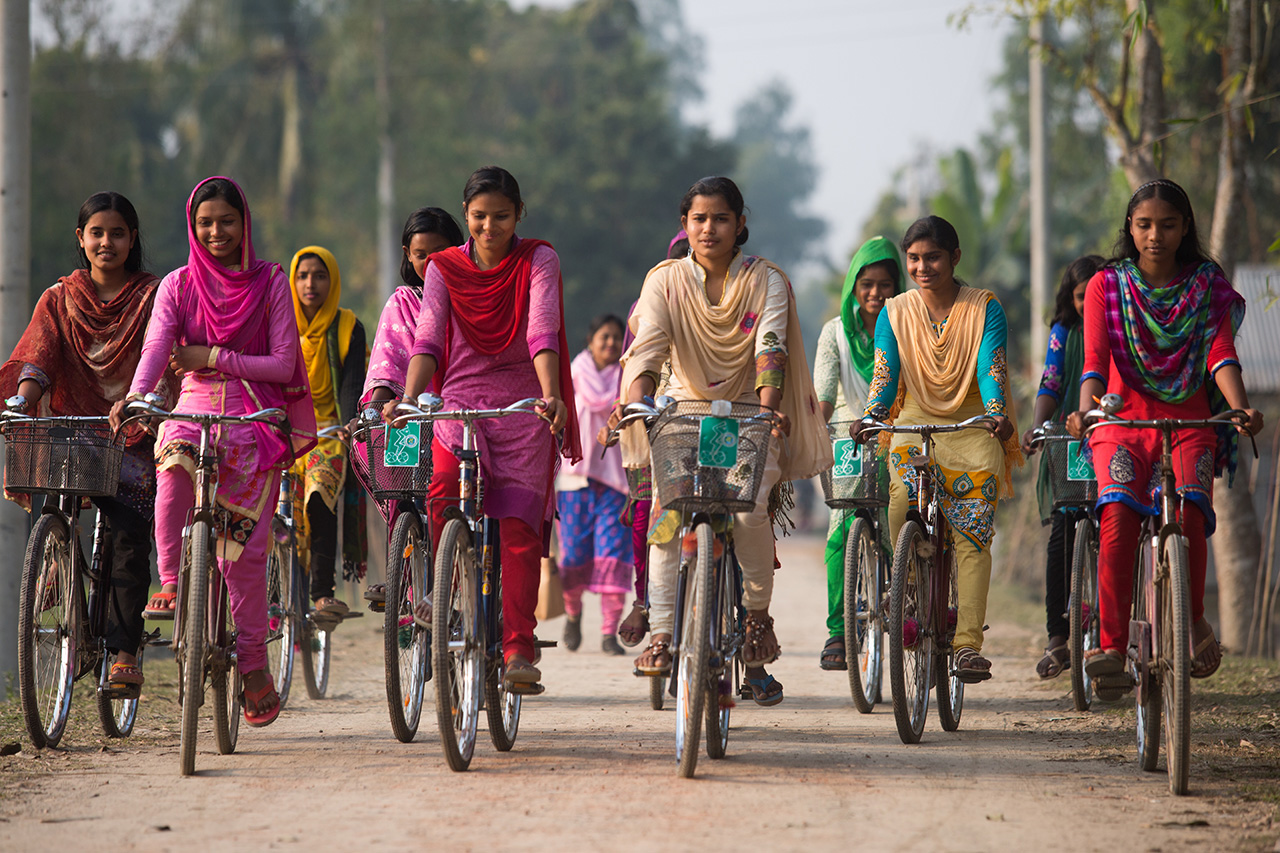Six suggestions to strengthen public spending in Bangladesh
Reading Time: 4 minutes
Bangladesh is tackling multiple challenges at the moment – recovery from COVID-19, international instability, rapidly multiplying climatic impacts, an upcoming election – as well as meeting fiscal conditions imposed by global bodies such as the International Monetary Fund. What insights from the ground could help to ensure the effectiveness of national spending, especially for those who need it the most?
As Bangladesh has emerged as one of the fastest growing economies in the world, people’s expectations of civic services have kept pace. To match that expectation, we need to ensure public spending is returning the maximum benefit to citizens. A few key changes – inclusive design, looking for key pain points, adding a resilience lens to poverty programming, focusing on poverty pockets and investing in healthcare and investing in impact analysis – could help to ensure that the benefit of public investments gets to the people who need it the most:
Firstly, public projects must keep the people they are aiming to reach at the centre of the design.
Did you know that there is a dedicated government scholarship for the children of migrant workers? Don’t feel bad if the answer is no – the people it is designed for barely know it exists.
When BRAC’s migration programme found out about the scholarship, our staff quickly started working to support a child to avail it. The application was ultimately successful, but the process involved months of bureaucratic hurdles.
Initiatives must be designed so that they are accessible and simple to access for the people they are designed to support. The family we supported to access the scholarship would never have had the resources or the patience to see the process through themselves – even though they were the exact type of family the scholarship was designed for. If they had been included in the design process however, hundreds of children could be supported through their studies by now.
Second, key pain points to reaching national goals must be identified. These are often hiding in plain sight, and can be uncovered through some simple, honest discussions at the community level.

Despite strict measures by the authorities, child marriage continues to be a persistent problem in many corners of Bangladesh. ©BRAC 2023
As an example, I recently went to a village where child marriage is endemic. I arranged a few discussions with different individuals and groups, asking a few different questions, all centred around one question – ‘Why is child marriage still prevelant here?’
Most people said that they, and others they knew in the village, were aware about the ills of child marriage – but that there were some Kazis (wedding officiants) who continued to allow child marriages.
I met some of these Kazis and imams (religious leaders) and asked them the same question. At first, they denied that children were married in the village. We talked for some time, and, after a while, they shared a bit more. They told me that they only receive BDT 4,500 (USD 45) as a monthly salary from the government – so they made ends meet with tips from every wedding. Child marriage to many is a social issue, but for them, it’s a question of livelihood. Small investments at key pain points like these could provide effective solutions – we just need to identify and target the core barriers and frictions.
Third, we need to accept that poverty has moved to urban areas and start thinking about creating interventions from the perspective of vulnerability, rather than just income poverty. COVID-19 exposed how fragile the incomes of many people living in cities are, and how they can exhaust their savings in a matter of weeks and be plunged into poverty.
If we look at the data from BRAC’s field offices across Bangladesh, people living in rural areas are now better off than their urban counterparts. This is largely due to the higher resilience of socioeconomic systems in rural Bangladesh.
To tackle inequality in cities, we need to design tailored initiatives to support people to improve resilience – and break the misplaced notion that efforts to alleviate inequality in cities will attract more people to urban areas. Moving to a city is an aspirational decision for many, and investing in people’s aspirations is crucial for the sustained growth of any nation.
Fourth, we need to recognise that the grounds of the fight against poverty are changing, and we need to give a renewed push to reach those who have been left behind, particularly in poverty pockets. Development has been far from uniform in Bangladesh, and the state of poverty is still striking in areas like the Barind region, the Chittagong Hill Tracts, some coastal regions and haor (wetlands) areas. Budget allocation must reflect this reality. More public spending should go to the regions most lagging in social indicators, rather than depending on the size of the influence of the local politician. We must invest in holistic and integrated initiatives to give these regions the big push they need.
Fifth, on the healthcare side, we must focus on projects that invest in human capital development and strengthening primary care. We need more public spending in projects that promote community-based preventive primary healthcare. Our healthcare system needs to prioritise prevention over cure. Community clinics must be strengthened and well resourced. Hospitals cannot handle any increase in patients requiring intense healthcare – the current dengue crisis is a good example. As temperatures continue to rise globally, and diseases such as dengue, chikungunya and Zika virus rise in response, budgets must focus on building a workforce and a primary system that is equipped for prevention and ready to respond.
Finally, we need to take accountability at an impact level, and the success of public spending must be measured by how many citizens’ lives were positively impacted, rather than how much of the budget we were able to spend. We need to invest in timely measurement and analysis, and in research to understand impact over the long term, and commit to learning from the findings.
Budgeting is always a challenge, but, as outlined above, improving effectiveness does not have to require huge budget outlays. By changing the way we approach public spending, from designing programmes with the same people those programmes are aiming to reach, to measuring impact through the changes those people see in their lives, the same amount of taka can go a lot further on the ground – and get to the hands of the people who need it the most.
Asif Saleh is the Executive Director, BRAC.





